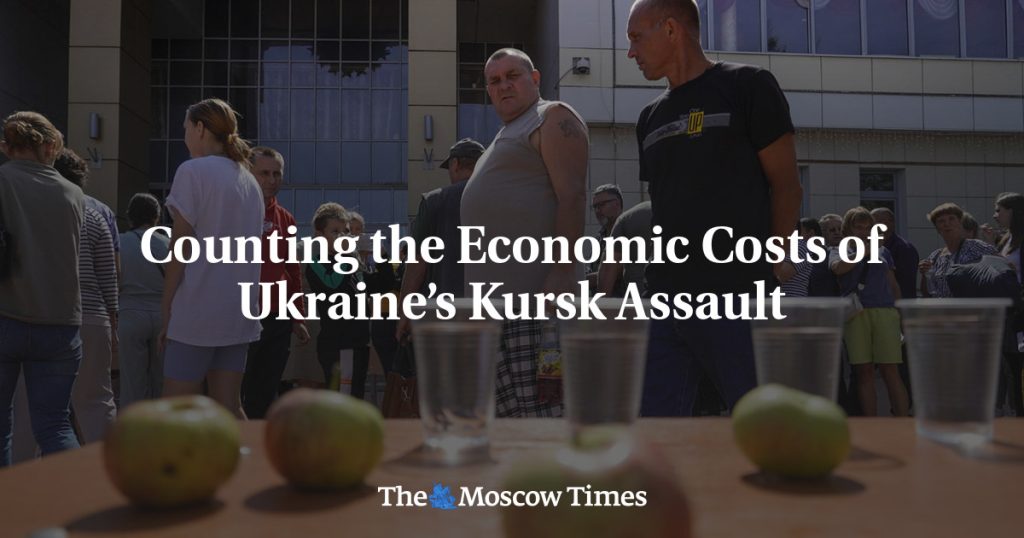Ukraine’s surprise incursion into Russia’s Kursk region has led to the control of over 1,100 square kilometers of Russian territory, causing concern in the Kremlin and changing the nature of the fighting. Among the consequences of Ukraine’s offensive are the economic effects, particularly related to the gas transit point in the region. Ukrainian forces have seized control of the gas metering station in Sudzha, which plays a crucial role in the transit of gas to European buyers, including Austria, Hungary, and Slovakia. However, despite the initial panic, gas supplies continued to flow through Sudzha without any announcements of intentions to cut off the supplies.
The volume of Russian gas transit through Ukraine has remained steady, with Gazprom reporting about 42.4 million cubic meters per day compared to the August average of 41 million cubic meters. The proceeds from the transit deal, although modest at about $800 million, are important for Ukraine’s transport system and help keep European gas prices stable. On the Russian side, the continued transit through Ukraine is beneficial, accounting for a significant portion of the revenues from gas shipments to Europe. The Kursk nuclear power plant, another key installation in the region, appears to be out of danger despite the ongoing conflict.
The Kursk region is crucial for its agricultural production, contributing a significant portion to the country’s agricultural output. While some major facilities in the region are beyond the reach of the fighting, the grain and oilseed harvest in Kursk is continuing despite the incursion. The impact of the conflict on the region’s harvest is minimal, according to experts in the industry. However, the political outcome of the Kursk incident could lead to a new round of escalation in the conflict, potentially affecting wheat prices and trade routes in the Black Sea. Additionally, cutting off Ukraine’s gas transit could sever the remaining economic link between Russia and Europe, escalating the risks of an all-out confrontation.
Despite Ukraine controlling only a small percentage of the Kursk region’s total area, the incursion has broader implications for the military and economic aspects of the conflict. The potential for a new round of escalation, rising wheat prices, and disruptions to trade routes could further complicate the situation in the region. The loss of the economic link between Russia and Europe through gas transit could increase the risks of a full-scale confrontation, including strikes on each other’s energy infrastructure. The ongoing conflict in the Kursk region highlights the complexities and interconnections of the military, economic, and political aspects of the situation between Ukraine and Russia.















